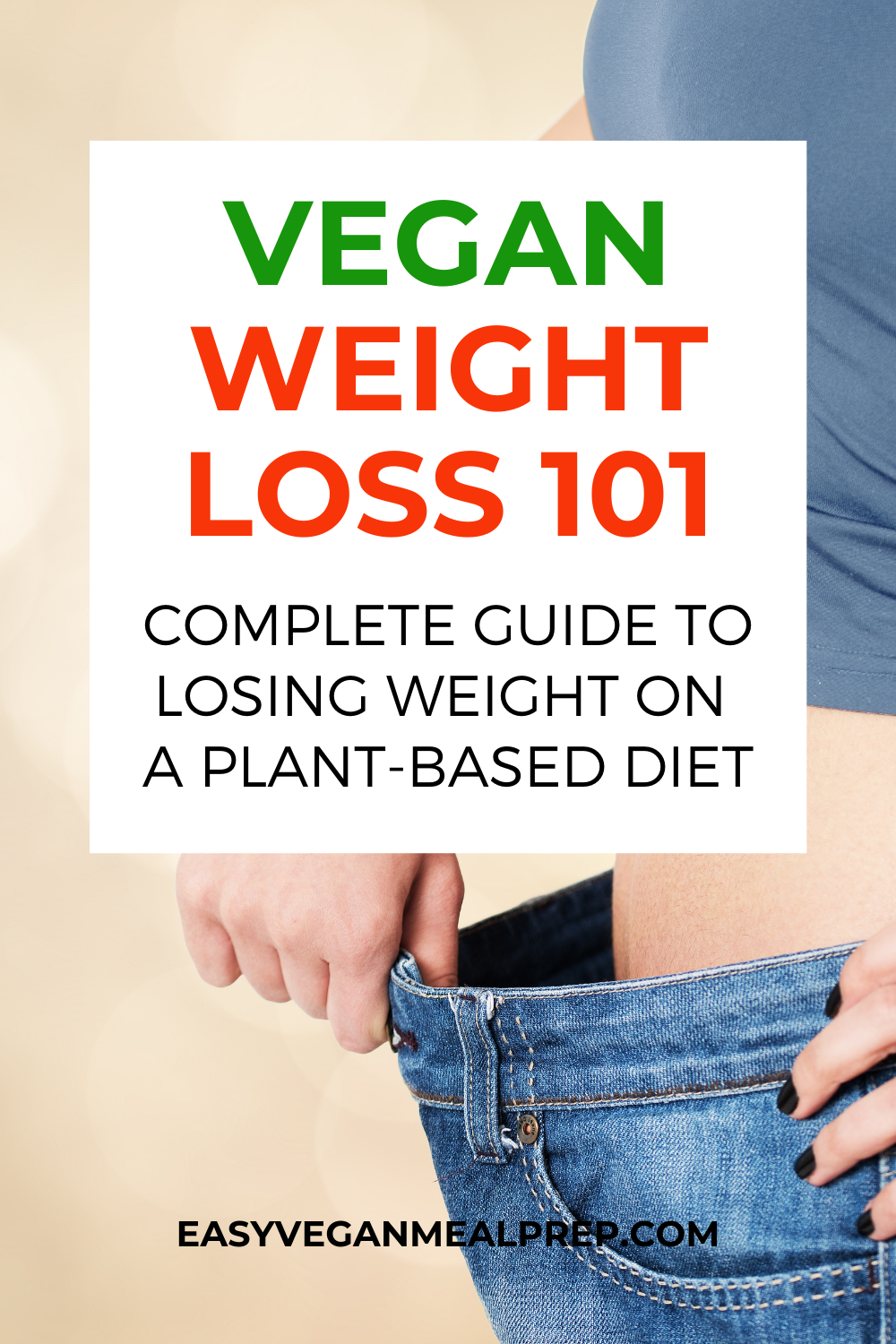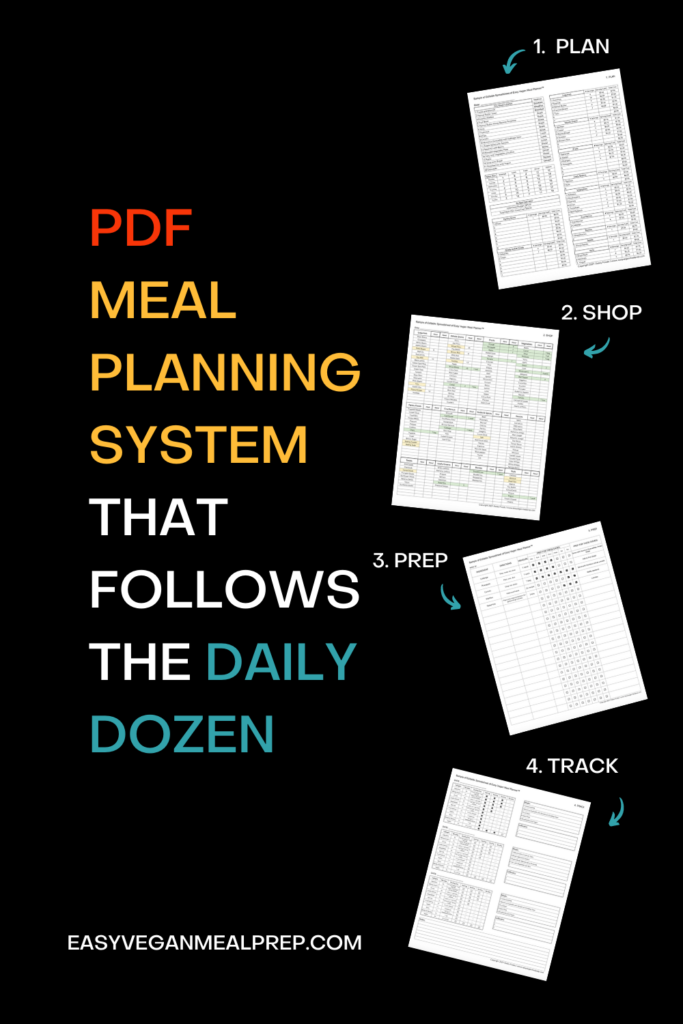
Looking for information on vegan weight loss? In this post I share a big list of evidence-based information about switching to a vegan diet for weight loss. It is now widely known that choosing a vegan weight loss diet is effective for losing weight and keeping it off. If your goal in 2021 is to lose weight and feel great, keep reading.
Note: Before making any changes to your diet using the information in this post, please consult your health care physicians.
Vegan diet for weight loss



Let’s get right into it. Below I’ll share information, links and video about a vegan diet for weight loss. This includes answering what is a vegan diet, what is a weight loss diet, what is a low-fat, whole food, plant-based diet, before and after photos, diet tips, and plant-based recipes for weight loss.
Want to plan your meals? Check out the Easy Vegan Meal Planner™ >
What is a vegan diet?
A vegan diet is a diet that does not include animal products, such as meat, eggs, fish, shellfish and dairy. A vegan diet includes any foods that do not contain these foods. Some people choose a vegan diet for weight loss, better health, the environment as well as animal cruelty. A vegan diet has been studied for decades.



The leading organization sharing evidence-based nutrition information on the health benefits of a vegan diet is the Physicians Committee for Responsible Medicine. This is a non profit group based in Washington D.C. which includes over 12,000 physicians who all promote a low-fat, whole food, plant-based diet for diet related disease prevention and survival.
There are two types of vegan diets:
- A vegan junk food diet
- A healthy whole food, plant-based diet
> Here’s why I’m vegan and eat a plant-based diet
What is a weight loss diet?



A weight loss diet is one that restricts calories with the goal of weight loss. This is often done for a period of time until the desired weight loss is achieved. Many diets that promote weight loss are promoting a diet that is often temporary and restrictive. The benefit of choosing a low-fat, whole food, plant-based diet for weight loss is that once a person has become accustomed to this diet it is easy to maintain for the rest of their life.
Healthline provides a useful calorie counter for weight loss. This tool can be used to calculate your daily calorie needs for weight loss.
What is a vegan junk food diet?



A vegan junk food diet includes any foods, including processed foods, that do not contain animal products. Many people start with this type of vegan diet. However, they usually find out quickly that a vegan junk food diet is not a healthy diet because it includes many unhealthy foods such as:
- Fried foods
- Foods packed with added oils
- Refined flours and sugars
- Food colorings and chemicals
Vegan diet supplements recommended by doctors
What is a whole food, plant-based diet?


A healthy whole food, plant-based diet is a vegan healthy weight loss diet that only includes foods made from plants (which are vegan foods). However, the focus of a plant-based diet for weight loss is to focus on only eating foods that are:
- Minimally processed
- Contain no added oils
- Use whole grains
- Lots of leafy greens, vegetables, legumes, cruciferous vegetables, herbs and spices
- Minimal nuts and seeds (if any at all during weight loss times)
The Physicians Committee for Responsible Medicine promotes a low-fat, whole food, plant-based diet for weight loss. Here’s their six ways to naturally boost energy and lose weight.
Plant-based meal planner
I follow the Daily Dozen and use my Easy Vegan Meal Planner™ to plan, prep and track what I eat everyday. This helps ensure I’m eating a balanced, healthy plant-based diet.
Learn more about how to use the Easy Vegan Meal Planner™ to stick to a plant-based diet >



Here’s a informative video interview with Dr. Neal Barnard (founder of PCRM) and Dr. Michael Greger (founder of NutritionFacts.org and the “Daily Dozen”). They discuss low-fat, whole food, plant-based diets for weight loss and long term health:
What to eat everyday for weight loss
Dr. Michael Greger (in the video above) has narrowed down what to eat everyday in a very easy-to implement system called the “Daily Dozen.” You can learn more about this by visiting his site, NutritionFacts.org and by reading his books available at Walmart.com:
Here’s what the Daily Dozen recommends eating every day:
Legumes



Legumes are beans, lentils and peas. Legumes are high in plant-based protein, fiber and other important nutrients. It’s recommended to eat 3 or more servings of legumes per day. Examples of these foods include:
- Black beans
- Pinto beans
- Red lentils
- Green lentils
- Peanuts
- Soy beans
- Tofu
- Tempeh
Whole Grains



Whole grains include a variety of grains that are in their whole form. This is as opposed to refined grains, such as white rice and white flour. Whole grains are packed with fiber and protein. They also help with digestion. It is recommended to eat 3 or more servings of whole grains per day. Examples of these foods include:
- Whole wheat flour
- Brown rice
- Farro
- Rolled oats
- Whole grain tortillas
- Whole grain bread
Fruits



Fruits are recommended as part of a healthy diet. Fruits are packed with powerful antioxidants and are great for satisfying your sweet tooth. I enjoy fruit for breakfast, snack and dessert throughout the day. Dr. Greger recommends eating 3 servings of fruits per day. Examples of fruits include:
- Bananas
- Apples
- Peaches
- Mango
Leafy Greens

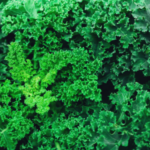

Leafy greens are an important part of a healthy diet. Leafy greens are full of fiber and powerful antioxidants. Not all leafy greens are in this category however. To qualify as a “leafy green” in this category they need to be hearty greens that are thick and fibrous. Dr. Greger recommends eating 2 servings of leafy greens per day. Examples of leafy greens include:
- Kale
- Collard Greens
Cruciferous Vegetables

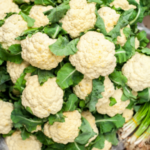

Cruciferous vegetables are delicious and an important part of a healthy diet. These include several very popular vegetables and have been classified in their own category because of their specific health benefits. Dr. Greger recommends consuming 1 serving of cruciferous vegetables per day. Here are several examples:
- Broccoli
- Cauliflower
- Cabbage
- Brussel Sprouts
Vegetables



There are a large variety of foods that fall into the vegetable category. Basically, if they aren’t listed in any of the above categories you can assume they fall into the vegetable category. Dr. Greger recommends 2 servings of vegetables per day. Here are some examples:
- Garlic
- Onions
- Sweet Potatoes
- Bell Peppers
- Carrots
- Celery
Berries



Berries are in their own category apart from fruits because they have very specific health benefits. Dr. Greger recommends 1 servings of berries per day. Here are some examples of berries which can be enjoyed fresh or frozen:
- Blueberries
- Strawberries
- Raspberries
Nuts

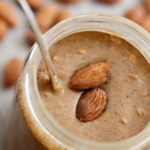

Nuts are packed with plant-based protein as well as fat. Dr. Greger recommends one serving of nuts per day. If you are trying to actively lose weight, it is recommended to limit intake of nuts. Here are some examples of nuts:
- Walnuts
- Brazil Nuts
- Cashews
- Pecans
- Hazelnuts
Seeds

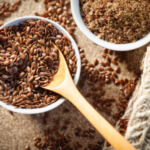

Seeds are packed with antioxidants, protein and fat. Dr. Greger recommends one serving of seeds per day. If you are trying to actively lose weight, it is recommended to limit intake of seeds. Here are some examples of seeds:
- Flax seeds
- Hemp seeds
- Sesame seeds
- Tahini sesame butter
Herbs & Spices

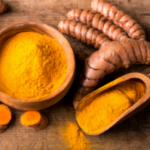

Herbs and spices are an important addition to our health as well as flavoring foods. Dr. Greger recommends 1 servings of herbs and spices per day. Here are some examples of these:
- Turmeric
- Ginger
- Cinnamon
Vegan weight loss before and after photos



There are many, many great examples of weight loss on a vegan diet online. Viewing before and after photos of weight loss can be very inspiring. Here’s a list of places to see vegan weight loss before and after photos online:
- 20 Inspiring Vegan Before and After Photos
- 13 Celebrities Before and After Going Vegan
- Vegan Before and After Weight Loss Transformations on Pinterest
Weight loss diet tips



The Physicians Committee for Responsible Medicine suggests these vegan diet weight loss tips:
Fill up on fiber
Aim to consume 40 grams of fiber a day from vegetables, fruits, whole grains, and legumes. Fiber prevents cravings and promotes a healthy digestive system and weight loss.
Eat your greens
The benefits of greens include they are low in calories but high in nutrients like calcium, magnesium, and folate.
Water and Weight Loss
Drinking water boosts metabolism and helps digestion.
Get enough sleep
Sleep-deprived people tend to eat more than people who are well-rested.
Plan your meals
Make things easy for yourself. Plan your meals and stock your refrigerator and pantry with healthy options.
The Easy Vegan Meal Planner™ follows the Daily Dozen recommendations and is specifically for meal planning a plant-based diet.




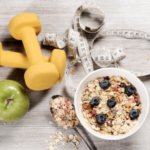

I’ve written many articles about transitioning to a whole food, plant-based diet on this site. Here’s links to articles where I share tips for maintaining a healthy vegetarian diet:
- Easy Vegan Meal Planner™ – instant download
- Why oil-free? Learn why you should eliminate added oils from your diet
- How (and why) I kicked my addiction to oil
- Here’s 4 vegan oil-free butter substitutes for baking
- Substitutes for coconut oil: Here’s 10 oil-free vegan coconut oil replacements
- Sunflower lecithin: My secret ingredient for making creamy plant milk at home
- My recommended meal prep ingredients and equipment
- Oil-free vegan cooking 101
Plant-based recipes for weight loss

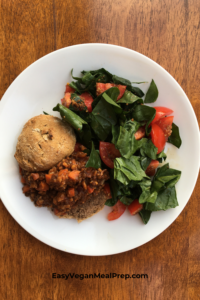

I share only whole food, plant-based recipes on this site. I follow the “Daily Dozen” recommendations by Dr. Michael Greger (shown in the video above). Here’s links to a variety of recipes I’ve published on this site. All of these recipes are oil-free, healthy, vegetarian recipes for weight loss:
- Quick fat-free dessert bowl recipe
- Easy Baked Cauliflower Florets (oil-free, GF, vegan)
- Big list of easy vegan dinner recipes (oil-free, whole grain, plant-based)
- [Video] Learn how to meal prep vegetables in just 15-minutes
- Super Easy Vegan Meatballs (oil-free)
Browse plant-based recipes by category:
Meal plan for weight loss with the Easy Vegan Meal Planner™ >
Share this post on Pinterest:

